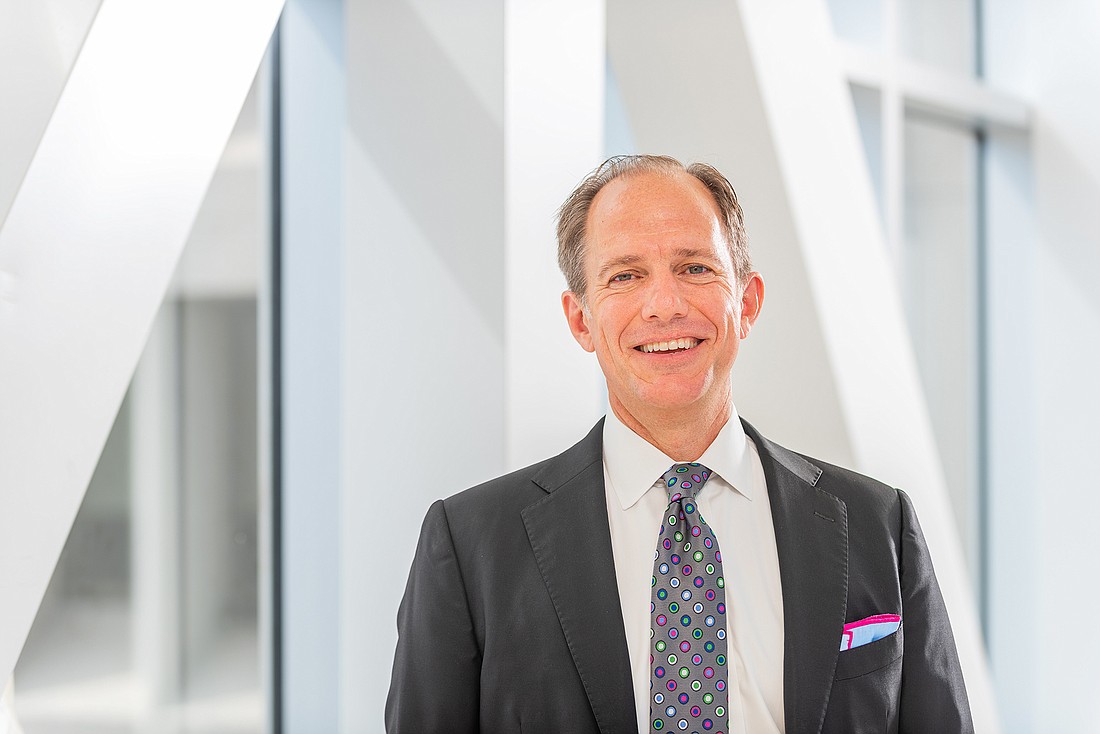
When Baptist Health President and CEO Brett McClung stepped into his role in July, his list of changes for the organization wasn’t long.
Serving as executive vice president and chief operations leader of the North Zone of Texas Health Resources, McClung said he was drawn to Baptist Health for its national reputation for quality patient care.
“To say yes to Baptist Health was a real easy choice for me,” McClung said.
Soon after starting, McClung developed a five-point strategic plan, which he said is designed to help plan for the health system’s future.
Those five points are growing for the future, integrating the system, caring for the consumer, advancing the Baptist Health way and advancing clinical care.
Some of the changes aren’t necessarily visible on the surface, he said.
That includes changes to the leadership structure, hiring two new positions – Elizabeth Ransom as executive vice president and chief physician executive and Mary Ellen Schopp as senior vice president and chief human resources officer. Three others were promoted as well.
“One of the key priorities for us, which is kind of woven through our plan, is to continue to build the team’s ability to manage change,” McClung said. “This industry is very different today than it was 20 years ago and it will be very different 20 years from now.”
In terms of the way Baptist delivers care, not much will change, but the system will focus more on providing virtual access and the overall ease of access to patients.
Patients already have the ability to book appointments online through an app.
At Baptist Medical Center Nassau, telemedicine capabilities are already running.
Patients can get a virtual ICU or subspecialty consultation from a doctor somewhere else in the system.
McClung said when people think about Baptist Health, he wants them not only to associate the system with high-quality health care, but also care that’s easy to access.
That’s part of the strategy with constructing the Baptist HealthPlace at Nocatee, which will comprise Baptist Health medical offices, a YMCA, a Brooks Rehabilitation office and pediatric rehabilitation services.
“As you see more developments, you’ll see us do that more where we’re creating convenience for the customer and we’re trying to build those near neighborhoods, build those in large areas of population where we think we could improve the speed to access and the access to different services,” he said.
Adding free-standing emergency departments is part of making health care more convenient. Baptist Health built four in the past several years and will build another if analytics prove there’s a need for one, McClung said.
Baptist operates free-standing ERs at Town Center, Oakleaf, North Jacksonville and Fleming Island.
The first free-standing ER in the system was at Fleming Island in the Baptist Clay Medical Campus.
In January, Baptist announced it would build a $200 million, 300,000-square-foot hospital on the campus. The plans for that hospital have been finalized for years, but in 2015 when Baptist applied for a certificate of need to build the hospital, it was denied by the state.
Those plans came back into play when the CON laws were repealed in July.
“Now we’re building the hospital that we thought was a good idea four years ago, five years ago. It’s still a good idea today,” McClung said. “In fact, we’ve tested that with some of the other things that we were allowed to establish in Clay County and those assets have been extraordinarily busy. Really, we’re underserving that community.”
Now that CON laws are repealed, constructing another hospital isn’t out of the question, McClung said. But it will be done only if Baptist sees a need to do so.
“We’ll grow for the future,” McClung said. “So if we need to build another hospital, we’ll do that, but we’ll do that thoughtfully every time.”